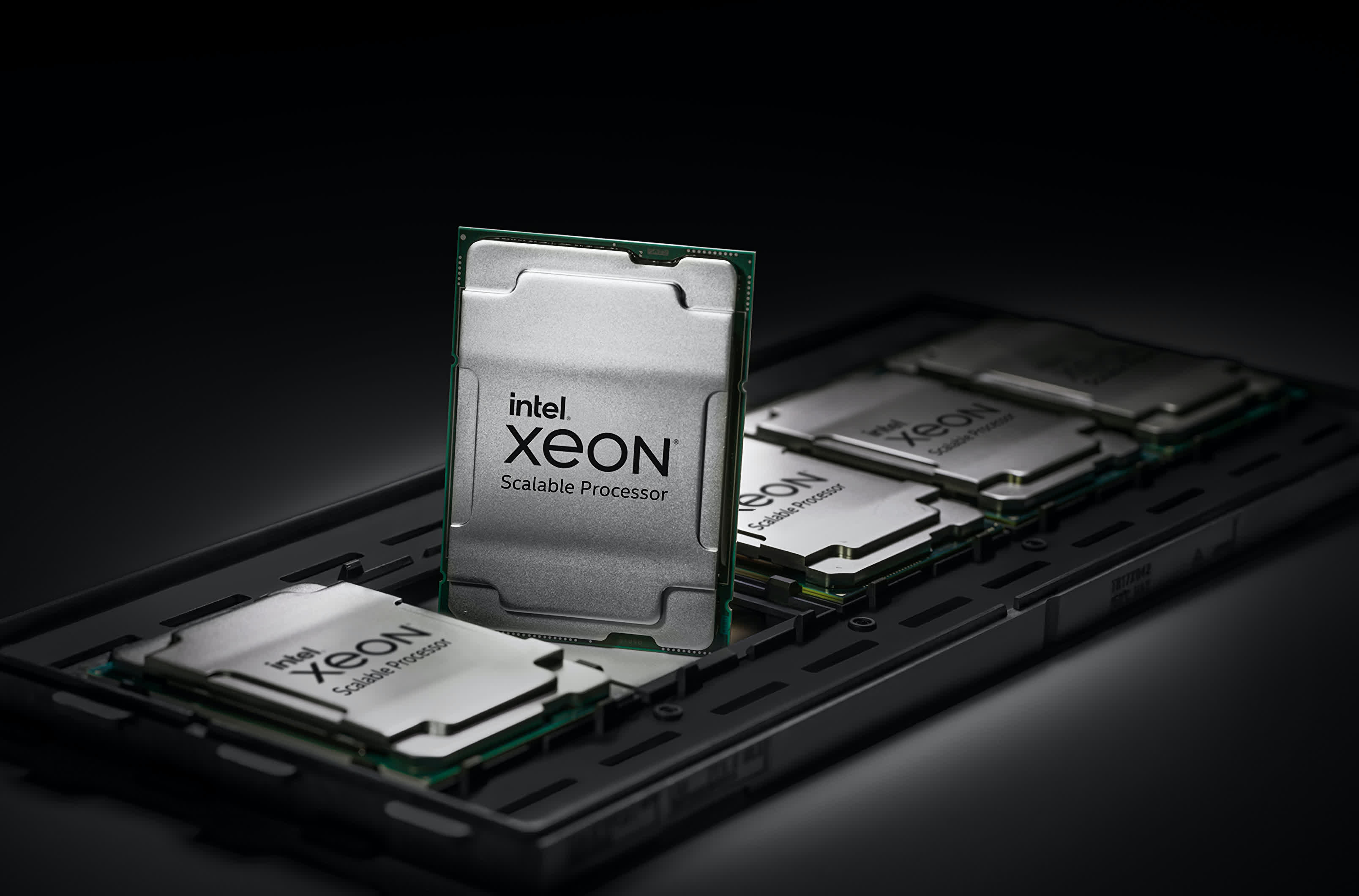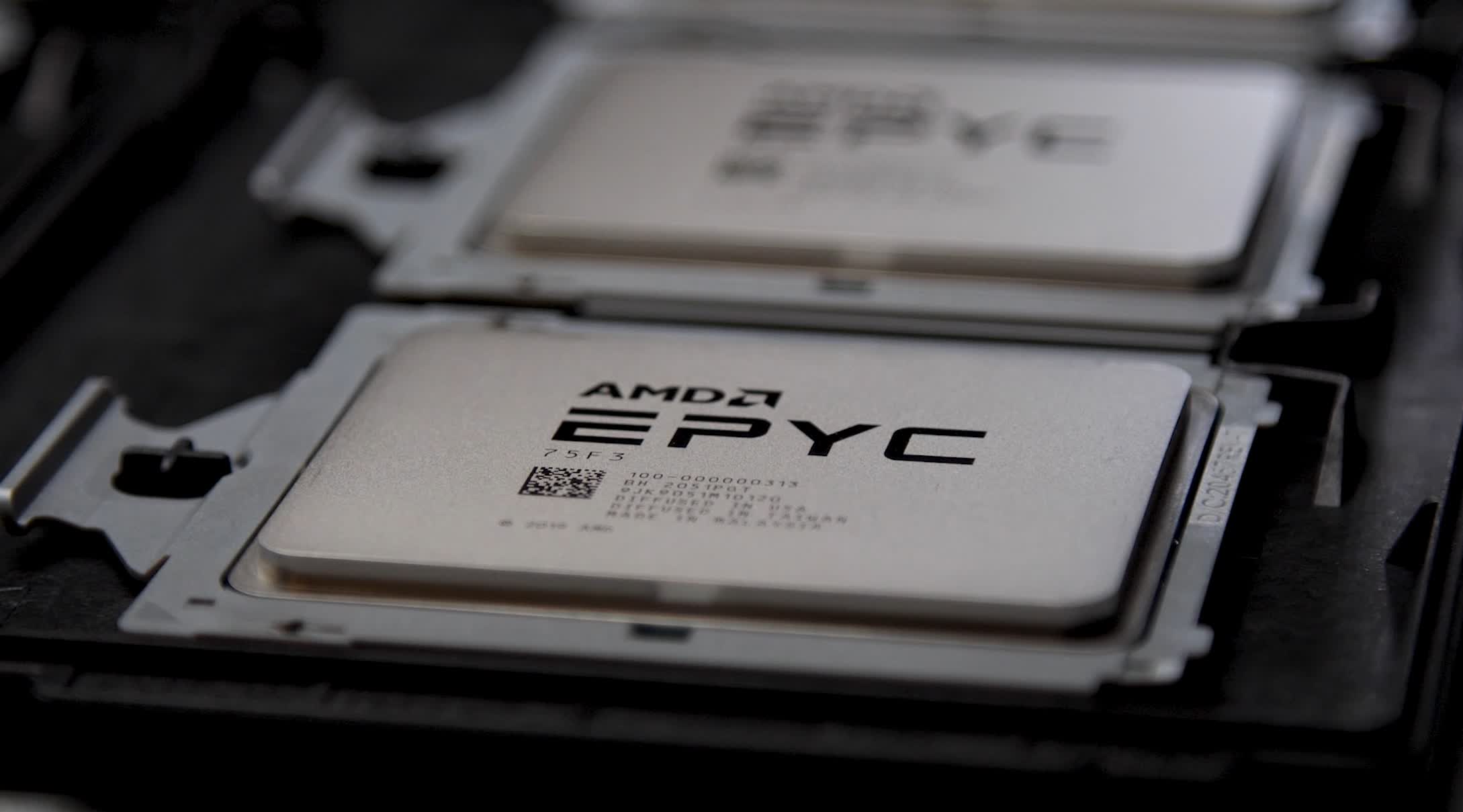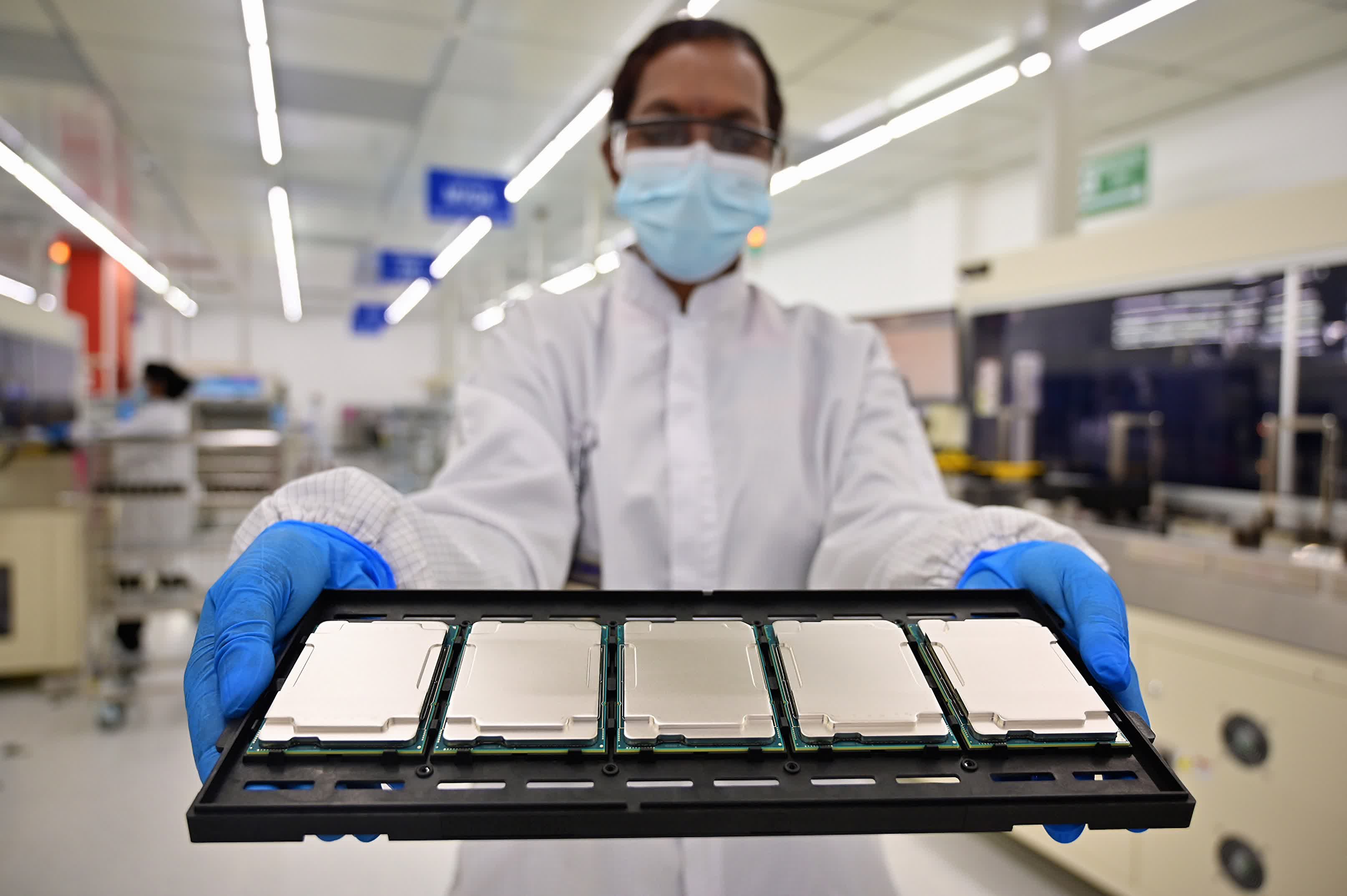In brief: Intel still commands a respectable 90 percent share of the server CPU market. However, the company isn't resting on its laurels. AMD has been making inroads into the server space with its Epyc processors, so Intel is now selling Xeon processors at a discount to challenge the former company's ability to juggle high production costs and supply chain bottlenecks.

Intel is truly feeling the heat coming from AMD as of late. The latter company has seen incredible gains in x86 processor market share over the past few years, and recently reached as high as 22.5 percent -- the highest it's had since 2007. It did this by changing focus away from value-oriented desktop processors and more towards cranking out as many gaming and enthusiast-level CPUs as it could.
Intel responded quickly by offering discounts on 11th and 10th gen Core processors, but AMD still dominates Amazon's best-selling charts to this day. Things are starting to look better for AMD on the notebook processor market, but supply constraints are keeping Team Red from making faster gains. This is an area where Intel still feels comfortable.

On the other hand, server CPUs were a major contributor to AMD's market share gains last quarter. The company says its latest Epyc processors launched in March offer double the performance of their Intel counterparts, and this translated into AMD supplying almost two-thirds of the CPU cores in the world's top 500 supercomputers in June.
While Intel holds almost 90 percent of the server market share, the company still has reasons to worry. After all, server processors are a sticky business that has both a high barrier of entry and high switching costs. According to DigiTimes, Intel is scrambling to prevent AMD from gaining more server CPU market share by offering discounts on its Xeon and Xeon Scalable processors.
Intel is doing this for two reasons. The first is that AMD depends on TSMC to manufacture its Epyc CPUs, whereas Intel relies on its own fabs to make Xeon CPUs. Some vendors have reported that AMD has solved its supply issues for the most part, but still has to deal with TSMC's increase in contract pricing moving forward.

The second reason is that unlike AMD, Intel's business is more diversified. This allows the latter to take a financial hit in the short run, especially knowing that hyperscale clients will tend to stick with AMD if they decide to go that route, as the costs of switching back to Intel down the line would be too high.
Either way, AMD is eating Intel's lunch and the latter is obviously worried about it -- enough to push its Xeon processors at a discount while it prepares the release of its next-generation Sapphire Rapids CPUs. These will be based on Intel's Enhanced SuperFin process -- also known as Intel 7 after the recent rebrand -- and are expected to be faster that AMD's Epyc 3 CPUs. As for when they'll become available, Intel is planning to begin small production runs early next year and ramp up to volume manufacturing in the second quarter.
https://www.techspot.com/news/91226-intel-using-heavy-discounts-xeon-cpus-stop-amd.html